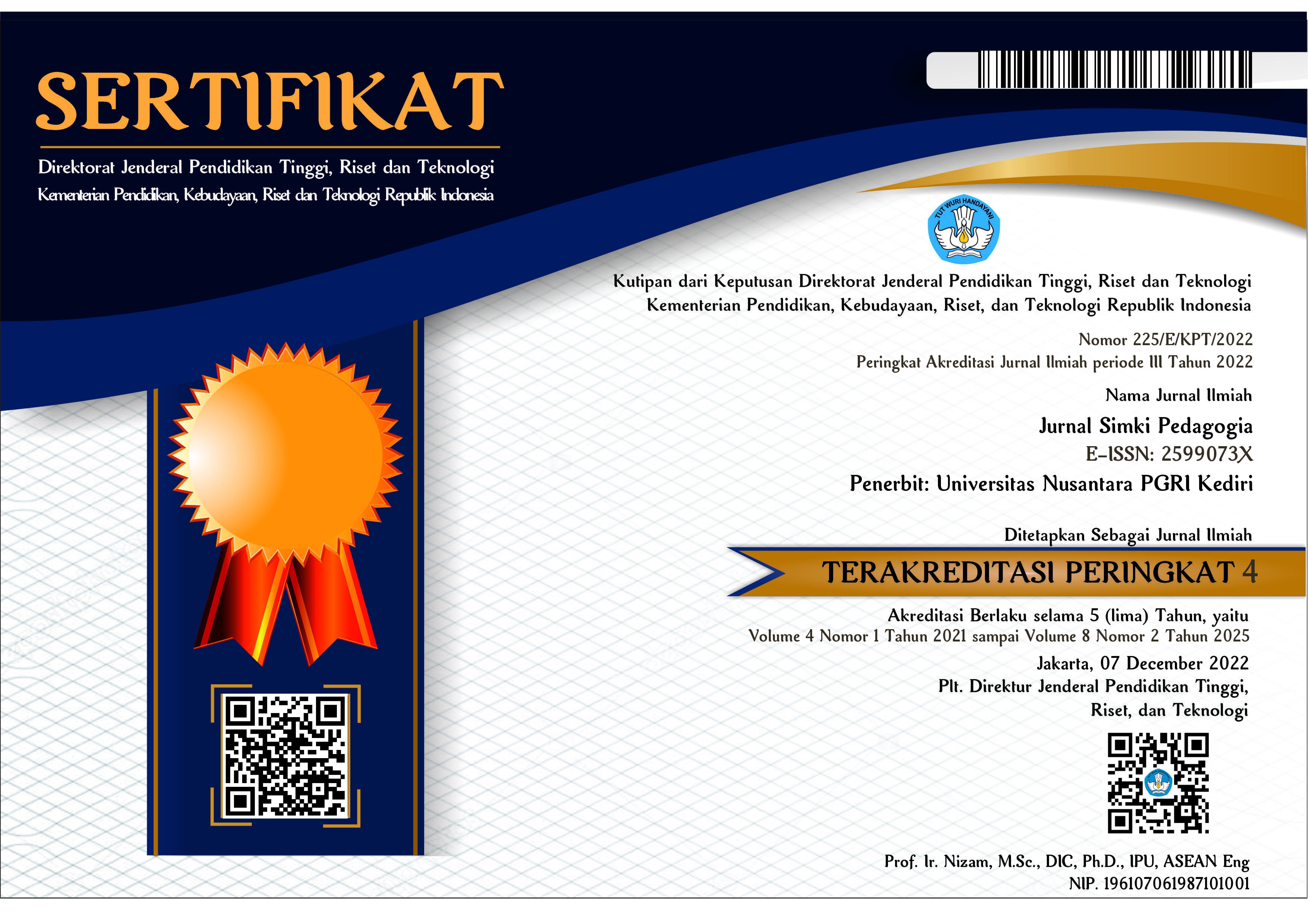Kesiapan Satuan Pendidikan di Kota Semarang Dalam Implementasi Kurikulum Merdeka
 Abstract views: 596
,
Abstract views: 596
,
 PDF (Bahasa Indonesia) downloads: 554
PDF (Bahasa Indonesia) downloads: 554
Abstract
The purpose of this study was to determine the implementation of the independent curriculum and to analyze the impact arising from the implementation of the independent curriculum at the education unit level in the city of Semarang. This research is a quantitative descriptive study that aims to determine the implementation of IKM in each educational unit in the city of Semarang. The data collection instrument in this study used open and closed question questionnaires using Google Forms, as well as direct field surveys. According to the questionnaire and survey data from IKM, 74.1% of the participating educational institutions were public schools, while 25.9% were private. According to the IKM procedure, 92.6% of educational units indicated that they had received sufficient information, 3.9% indicated that they could, and 3.5% indicated that they had not. According to the study's findings, the Education unit first seeks out and investigates information on the Implementation of the Independent Curriculum from a variety of sources, analyzes the potential of the school, evaluates teacher readiness, and evaluates the readiness of learning facilities and infrastructure support. The Education Unit gathers and prepares the essential provisions for the Implementation of the Independent Curriculum registration procedure. It also assesses the foundation for the Implementation of the Independent Curriculum as well as potential outside intervention elements. There were numerous internal and external barriers discovered. There are efforts being made to study independently, participate in social gatherings, attend workshops and courses, and learn from a variety of sources
Downloads
References
Faiz, A., & Purwati, P. (2021). Koherensi Program Pertukaran Pelajar Kurikulum Merdeka Belajar Kampus Merdeka dan General Education. Edukatif: Jurnal Ilmu Pendidikan, 3(3), 649–655. https://doi.org/10.31004/edukatif.v3i3.378
Indarta, Y., Jalinus, N., Waskito, W., Samala, A. D., Riyanda, A. R., & Adi, N. H. (2022). Relevansi Kurikulum Merdeka Belajar dengan Model Pembelajaran Abad 21 dalam Perkembangan Era Society 5.0. Edukatif : Jurnal Ilmu Pendidikan, 4(2), 3011–3024. https://doi.org/10.31004/edukatif.v4i2.2589
Leny, L. (2022). Implementasi Kurikulum Merdeka untuk Meningkatkan Motivasi Belajar pada Sekolah Menengah Kejuruan Pusat Keunggulan. Journal IAIM Sinjai, 1(1), 38–49. https://doi.org/10.47435/sentikjar.v1i0.829
Manalu, J. B., Sitohang, P., Heriwati, N., & Turnip, H. (2022). Pengembangan Perangkat Pembelajaran Kurikulum Merdeka Belajar. PROSIDING PENDIDIKAN DASAR, 1, 80–86. https://doi.org/10.34007/ppd.v1i1.174
Prajitno, S. B. (2015). Metodologi Penelitian Kuantitatif (pertama). JINoP (Jurnal Inovasi Pembelajaran), 1–29.
Rahayu, R., Rosita, R., Rahayuningsih, Y. S., Hernawan, A. H., & Prihantini. (2022). Implementasi Kurikulum Merdeka Belajar di Sekolah Penggerak. Jurnal Basicedu, 6(4), 6313–6319. https://doi.org/10.31004/basicedu.v6i4.3237
Yosani, C. (2006). Teknik Analisis Kuantitatif. Makalah Teknik Analisis II, 1–7. http://staffnew.uny.ac.id/upload/132232818/pendidikan/Analisis+Kuantitatif.pdf
Copyright (c) 2023 Soedjono, I Made Sudana, Kamsidjo Budi Utomo, Ibnu Fatkhu Royana

This work is licensed under a Creative Commons Attribution 4.0 International License.

Jurnal Simki Pedagogia : https://jiped.org/index.php/JSP/index is licensed under a Creative Commons Attribution 4.0 International License.
















